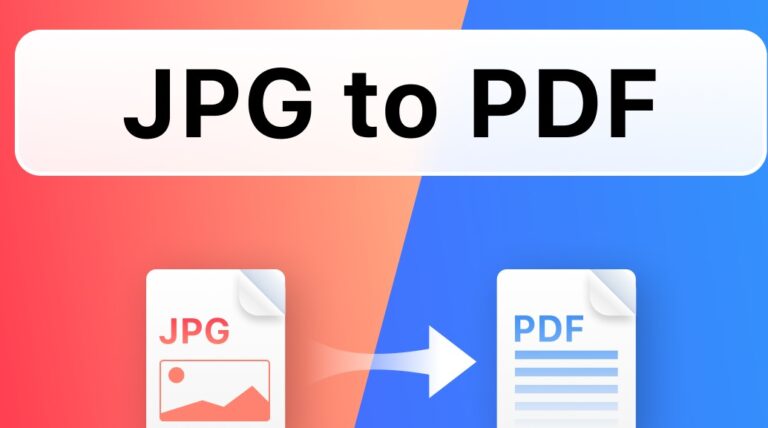Effective vendor management is paramount in our current highly competitive and interconnected business environment. It’s not just about sourcing suppliers and negotiating contracts; rather, it’s a strategic function that involves cultivating relationships, mitigating risks, ensuring quality, and enhancing operational efficiency. A key tool aiding this function is vendor management software, visit Certa!
The Core of Vendor Management

Vendor management, in essence, is the systematic process of overseeing and optimizing all interactions and relationships with an organization’s vendors or suppliers. The focus of this process is not limited to mere contractual management; it expands to encompass broader aspects. These involve the appraisal of supplier performance, adept handling of risk management, and the cultivation of strategic partnerships. All these activities aim to streamline operations, improve efficiency, and establish mutually beneficial relationships.
In more detailed terms, vendor management includes the routine evaluation of suppliers to ensure they meet the established standards and expectations. Risk management, on the other hand, aims to anticipate and mitigate potential issues that might arise in the vendor-client relationship. It’s about reducing uncertainties and securing operations. Lastly, nurturing strategic relationships is about fostering strong, mutually beneficial relationships with vendors. These relationships can lead to better negotiations, improved service quality, and the potential for long-term partnerships.
Undeniably, every journey in vendor management is littered with its unique set of challenges. Some of the critical factors to consider include managing costs, assuring quality, overseeing risk, and promoting innovation. The task of managing costs involves diligent monitoring and control of expenditures to ensure financial efficiency. Quality assurance is about maintaining the high standards of the products or services received from vendors. Risk management involves identifying potential risks in vendor relationships and implementing strategies to mitigate them. Finally, fostering innovation involves encouraging vendors to bring fresh ideas and approaches to the table, which can provide a competitive edge.
Juggling all these elements is a formidable task, hence the increasing reliance on vendor management software. This specialized software simplifies and automates various aspects of vendor management, allowing organizations to balance these critical elements more effectively. It provides tools to manage contracts, track performance, analyze risks, and identify opportunities for innovation, easing the complexity of vendor management.
Why Vendor Management Software is a Game Changer
Vendor management software (VMS) serves as a technological bridge between businesses and their vendors. It systematically manages vendor relationships, contracts, performance evaluations, and other crucial aspects of vendor management.
Effective third-party vendor management software isn’t just about eliminating administrative burdens, it’s also about cultivating stronger vendor relationships. By providing a centralized platform for all vendor-related data, the software facilitates transparent and effective communication. It eliminates miscommunication, streamlines the negotiation process, and fosters trust – all integral components for thriving relationships.
Moreover, vendor management software offers a potent shield against potential risks. In offering real-time insights into vendor performance and a comprehensive view of the vendor landscape, businesses can proactively identify and address potential issues before they snowball into critical risks.
Navigating the Selection Process

The process of selecting the optimal vendor management software is a complex task involving several critical considerations. Foremost among these is a meticulous appraisal of the software’s capabilities, including its features and functionalities. It is necessary to determine if the software delivers an all-inclusive suite of crucial functions. These may include contract management, vendor performance tracking, and risk management, among others.
Additionally, one must inquire if it can provide comprehensive, real-time data analysis. This function is invaluable as it feeds into the decision-making process, enabling efficient management and strategic planning.
Another essential factor to take into account is the financial dimension. A software solution might be impressive, complete with all the advanced features, but it needs to be evaluated in the context of cost-effectiveness. A platform that is not cost-effective might end up causing more financial harm than good. Therefore, it’s crucial to consider not just the immediate cost, but also the long-term value of the software. This approach enables a better appreciation of the return on investment over time, ensuring the solution provides value for money.
Moreover, simplicity of use and seamless integration capabilities significantly contribute to a software’s worth. Overly complex software that requires extensive training can result in delays, decreased efficiency, and increased user frustration. Conversely, software that easily integrates with existing systems offers the advantage of minimizing disruption to workflows. This integration enhances productivity by creating a seamless link between the new and existing infrastructure.
Finally, it’s of paramount importance to consider the scalability and customizability of the vendor management software. The ideal software should be capable of evolving with your business. As the organization grows and evolves, vendor management software should be able to adjust to the changing needs and demands. A software solution that can adapt over time ensures your investment remains relevant and valuable for the long haul. Therefore, scalability and customization become essential attributes when considering the best vendor management software.
Embracing the Software
Choosing the appropriate VMS is an important initial step, but the real challenge lies in the successful implementation of the chosen solution. Beyond software selection, organizations must invest time and resources in training their staff to utilize the new system efficiently. Effectively integrating the software into existing workflows and adapting to the changes it brings is equally vital.
Once the vendor management software is fully implemented, it proves to be a game-changer for businesses. It acts as a robust tool that optimizes and enhances vendor management practices. By automating and streamlining processes, the software eliminates manual and time-consuming administrative tasks. This efficiency allows companies to redirect their focus towards strategic decision-making, as the software handles the repetitive and mundane aspects of vendor management.
Moreover, the software’s analytical capabilities provide valuable insights into vendor performance, contract management, and cost optimization. Armed with these insights, businesses can make informed decisions, improve relationships with vendors, negotiate better contracts, and identify opportunities for cost savings. Overall, effectively implemented vendor management software empowers organizations to maximize their efficiency, productivity, and ultimately, their bottom line.
Keeping Pace with the Future

The landscape of vendor management is continually evolving, driven by technological advancements, industry changes, and shifting regulatory compliance. Being aware of these changes and trends is crucial to maintaining an effective vendor management process.
In the realm of compliance, regulations often evolve in response to industry shifts and societal changes. Adhering to these changes is critical for maintaining business integrity and avoiding legal pitfalls. Vendor management software can aid in this process by ensuring businesses stay abreast of the latest compliance requirements.
Lastly, keeping an eye on emerging technologies can provide businesses with a competitive edge. Whether it’s AI, blockchain, or machine learning, these technologies can greatly enhance the capabilities of vendor management software.
Selecting and implementing the right vendor management software can significantly enhance a business’s operational efficiency and performance. It’s about making informed decisions, understanding the unique challenges, and leveraging technology to boost efficiency. Remember, the goal is not just to manage your vendors, but to strategically collaborate with them for mutual success.
The journey may seem complex, but with the right information and mindset, your business can successfully navigate the selection process and reap the rewards of effective vendor management.
Related Posts:
- 20 Best Gaming Headset Under 50$ 2024 - for PC, PS4,…
- Top 10 Best Modem For Gaming 2024 - For Optimum Gaming Speed
- Top 10 Best Paint Sprayer For Cabinets 2024 -…
- 15 Best Dog Food For Allergies 2024 - Adult, Puppy…
- 10 Best Climbing Harness of all Time 2024 - Opinion…
- 12 Best Car Wax For Black Cars 2024 - Protection and…







